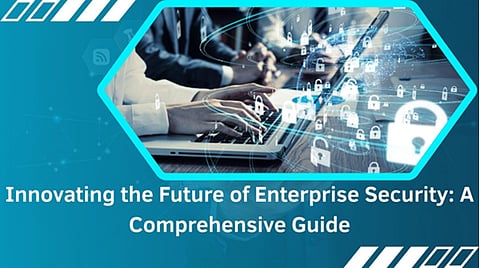

As we know in today’s rapidly changing digital environment, the need for cybersecurity has never been more urgent. In an extensive companion piece, the value of forging a career in enterprise security is discussed, underscoring key concepts and groundbreaking developments that are defining the profession. Written by Nagaraju Velur, the guide focuses on the journey of becoming a skilled cybersecurity professional, emphasizing both theoretical and technical foundations that are necessary for success in today’s complex security environment.
As you know, cybersecurity has become a booming industry. Even with a talented worldwide cybersecurity workforce of 4.7 million, the industry is still grappling with a staggering skills gap, over 3.4 million more workers needed to keep up with soaring demand. The perpetual increase in the frequency and sophistication of cyber attacks, along with the ever evolving and complicated digital landscapes that enterprises need to protect, have made specialized knowledge in cybersecurity an unparalleled asset. This skills gap, compounded by sophisticated cyber threats, underscores the importance of cultivating a workforce that is not only qualified but also adaptive to emerging challenges.
At the heart of cybersecurity is the CIA triad—Confidentiality, Integrity, and Availability. This risk management framework is the foundation upon which security decision-making is made to keep sensitive information protected, accurate, and accessible only to those who are authorized to have it. Lax security measures may be one of the biggest threats to organizations today. As threats become more advanced, these fundamental principles have become essential for creating secure, resilient digital infrastructures.
With cyber attacks increasing in frequency and complexity, advanced authentication mechanisms such as multi-factor authentication are critical to fight credential-based threats. Weve found that strong authorization processes are essential for securing systems. More organizations are adopting enterprise-wide risk management approaches to identify and mitigate risks before they become an issue. This approach not only protects assets but also ensures business continuity by adapting security frameworks to evolving threats and shifting risk environments.
The cybersecurity sector attaches a lot of weight to professional credentials. Widely acknowledged credentials such as the CISSP (Certified Information Systems Security Professional) and CCSP (Certified Cloud Security Professional) have become a key component to furthering your career in this exciting and ever-changing field. These certifications offer a development framework for those seeking to develop a broad knowledge foundation, as well as hands-on experience with specialized fields like cloud security and identity management. Organizations that prioritize certifications when hiring report improved security practices and a greater ability to address emerging cyber threats.
With more and more incidents of network security breaches coming to light, the basics of networking are a key part of any cybersecurity workforce’s method of operation. With organizations continually the target of the most sophisticated, evasive attacks that even surpass traditional security, an intimate knowledge of the latest principles behind cutting-edge networking technologies such as next-gen firewalls, intrusion detection and prevention systems, and network segmentation is a must. The ability to manage and secure complex network infrastructures is essential for enterprise security teams, especially as organizations expand their digital presence and tackle evolving cybersecurity challenges.
In the rapidly changing cybersecurity environment, theoretical knowledge is only the first step. Real-world experience at scale, through purpose-built, high-throughput centers like Security Operations Centers (SOCs) are crucial in shaping and ensuring incident response expertise and skills. Research has found that organizations with formalized training systems achieve quicker threat detection and a more efficient response time. Simulating real-world threats in controlled lab settings not only enhances a team’s ability to react but also strengthens their overall security posture, ensuring that security teams are prepared for anything that comes their way.
As organizations undergo digital transformation and move to the cloud, securing that cloud infrastructure is more important than ever. The rising complexity of cloud models and the escalating cyber threat landscape have made the market for cloud security solutions booming. Businesses are pouring money into more serious constructs, such as the shared responsibility model, to ensure only sensitive data is safeguarded while staying compliant with regulations. Mastery of cloud-native security tools and effective risk management is now a crucial skill for modern cybersecurity professionals navigating distributed environments.
Emerging technologies such as artificial intelligence and machine learning are innovating the field of security operations by granting organizations more productive automated threat detection, response, and predictive analytics. By integrating AI into their operations, organizations can react to cyber threats more quickly and precisely, which can help minimize the effects of any breaches that occur. Automation helps organizations improve security processes, reduce the potential for human error, and increase efficiency. As cyber threats evolve, leveraging these technologies is essential to staying ahead and protecting digital assets.
All-in-all, enterprise security evolution starts with a long-term strategy for career development, combining the right mix of owners’ education and practitioners’ experience. As the landscape for information security continues to change, practitioners especially need to be rooted in foundational ideas while understanding innovative technologies that are developing such as cloud security, machine learning and artificial intelligence, and adaptive authentication. Regular skill refreshes and recertification, coupled with a willingness to adopt innovation, help give cybersecurity professionals the tools they need to secure the digital world ahead, as discussed in Nagaraju Velur’s State of Cybersecurity report.
